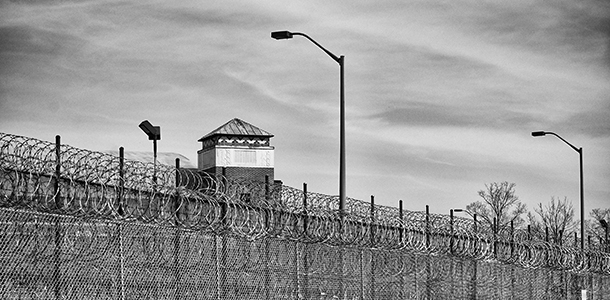
(Photo Credit Brad K./Flickr)
Hundreds of people committed to helping former offenders successfully return to their communities were energized and ready to get back to work after a recent event, when one state official paused to point out how far California has come in the past few years.
“This is a mammoth shift,” Linda Penner proclaimed about how California’s governmental agencies are working with community-based organizations (CBOs) to ensure successful reentry from incarceration to the community.
Penner shared more about the change from previous years: “We couldn’t even spell C-B-O. With that said, I’m proud to say that I can’t imagine doing this work without the partnerships, without CBOs, without faith-based communities, without families.”
But the shift is more than working with partners. It is how the state and county criminal justice systems are shifting the way they work toward breaking the cycle of re-incarceration.
As chair of the Board of State and Community Corrections (BSCC), Penner made the comments during the two-day “Reentry Solutions: People, Programs and Policy” conference held last week in Ontario. The conference convened representatives from governmental agencies, community-based organizations and advocates to discuss how to achieve successful reentry for not only the formerly incarcerated, but those whose lives are impacted by incarceration.
Panel discussions held throughout the conference focused on all facets of completing successful reentry including issues of family, housing, health, employment, education and neighborhood conditions. Subjects such as creating pre-release programs to ensure success, the faith community’s role in reentry and the impact of reentry on the children and families of the incarcerated were discussed. Successful state and county programs were highlighted, also. This is the conference’s second year hosted by the San Francisco Federal Reserve Bank.
CA Fwd Senior Policy Consultant Kathy Jett led a panel discussion focused on the health care of returning individuals. Panelists discussed how the Affordable Care Act and the state’s Medi-Cal 2020/1115 Waiver can help counties provide services to certain populations as well as how counties work with the reentry of individuals who have behavioral health issues, such as long-term substance abuse or mental health illness.
Panelist Stephanie Welch, executive officer of the Council on Mentally Ill Offenders (COMIO) talked about how the mentally ill have a higher recidivism rate than the general jail population and commented “the crime is that we’re not following them when they return to the community.” She added that strategies for successful reentry include pre- and post-release psychiatric services, as well as removing the stigma of mental illness, as it is a barrier to opportunities, especially for those in the criminal justice system.
Riverside County Probation Chief Mark Hake led the final general session of the conference, which focused on what changes, challenges and accomplishments are taking place on the state and county level to ensure successful reentry, which includes work with community partners.
“I believe, if we are to improve, not only our work on reentry, but across the justice systems, we must work to develop and enhance the partnership opportunities that exist in our local communities,” said Hake.
“We’re preparing offenders for tomorrow’s success,” said Jay Virbel, director of the Division of Rehabilitative Programs at the California Department of Corrections and Rehabilitation. He outlined several in-prison and reentry services that partner with outside organizations. Some of those include providing career technical education, substance abuse disorder treatment programs and a program in which inmates use the arts to express themselves and as therapy.
“This is about doing the hard work, within our government, our CBOs and in the community,” said Jim Mayer, president and CEO of CA Fwd. “We need the capacity to have a fact-based understanding of how it’s working, to be candid and honest in our assessments of what we can do better. Every one of these programs that we’ve been talking about are candidates for how we can do better.”
CA Fwd is currently working with several counties, including Riverside, to achieve justice system change through data-driven evidence in order to lower jail populations.
A successful reentry was embodied by panelist Troy Vaughn, a former homeless veteran and inmate, who has worked for more than two decades to create opportunities and system-wide change for the formerly incarcerated.
Now the executive director of the Los Angeles Regional Reentry Partnership, Vaughn shared his CBO’s point of view: “We have to challenge ourselves as a community and not expect the government to do everything for us. People are coming home to our communities. They come home to our churches. They come home to our families. They come home to our community-based organizations. They’re coming home and we need to be able to create a welcoming environment for them.”
Vaughn also reminded the audience the key to a successful reentry: “The greatest resource you can have is the person that is leaving the institution (incarceration).”

